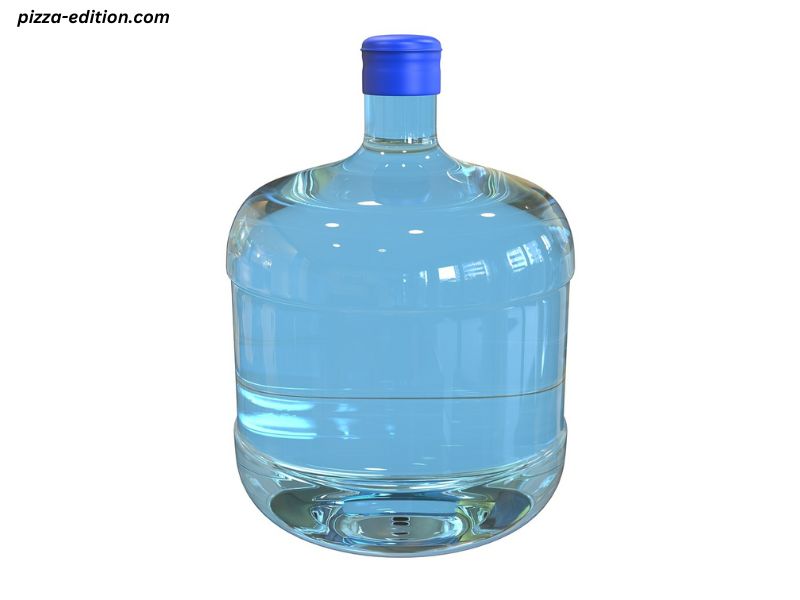When it comes to measuring liquids, one of the most common units of measurement is the gallon. Whether you’re dealing with water for scientific purposes, cooking, or even transportation, understanding how much a gallon of water weighs can be crucial. This article explores the weight of a gallon of water, factors that influence this weight, and why it matters in everyday scenarios.
Understanding the Weight of Water: How Much Does a Gallon of Water Weigh?
Water is a unique substance that, when measured in different units, can seem deceptively simple. The weight of a gallon of water is often more important than people realize, especially when it comes to logistics, health, or cooking. A gallon is a standard unit of liquid measurement, but water’s density can vary slightly depending on temperature and pressure.
To answer the primary question: how much does a gallon of water weigh?
A gallon of water weighs approximately 8.34 pounds (lbs) at 62°F (17°C), the standard temperature where the density of water is considered to be at its most typical.
But there are several factors to consider that can influence this weight, including:
- Temperature
- Water quality
- Measurement system used (US gallon vs. Imperial gallon)
Let’s dive deeper into these aspects to understand the weight of a gallon of water in various conditions and what factors could cause slight variations.
The Basics: A Gallon of Water and Its Standard Weight
The weight of water is primarily determined by its density, which is the mass of the water relative to its volume. At 62°F, water’s density is roughly 1 gram per milliliter (g/mL). This means that one milliliter of water weighs exactly one gram. Since a gallon consists of 128 fluid ounces, it can be calculated that:
- 1 US gallon = 128 fluid ounces = approximately 3.785 liters
- 1 liter of water weighs around 1 kilogram (kg), or 2.2 pounds.
Thus, 3.785 liters of water weighs approximately 8.34 pounds (lbs), which is the standard weight of a gallon of water at 62°F.
US Gallon vs. Imperial Gallon: Does It Affect the Weight?
It’s important to differentiate between the US gallon and the Imperial gallon, as these units are not the same. A US gallon is equivalent to approximately 3.785 liters, whereas an Imperial gallon, used primarily in the UK, is equal to 4.546 liters.
Since the volume of an Imperial gallon is slightly larger, the weight of water in an Imperial gallon will be heavier. At standard temperature and pressure, the weight of an Imperial gallon of water would be:
- 1 Imperial gallon = 4.546 liters ≈ 10.02 pounds (lbs)
This means that a gallon of water weighs more in the Imperial measurement system compared to the US measurement system.
Factors Affecting the Weight of Water
While the weight of a gallon of water is approximately 8.34 pounds (for US gallons), certain factors can slightly alter this weight:
1. Temperature
Water density decreases as the temperature increases. As the temperature rises, water molecules move faster and spread out, causing the water to become less dense and, therefore, lighter. Conversely, when water is cooled, the molecules slow down, causing it to become denser and heavier.
Here’s how temperature can affect the weight of water:
- At 32°F (0°C): The weight of a gallon of water is approximately 8.34 pounds, since water is densest at this temperature.
- At 62°F (17°C): The weight of a gallon of water is still about 8.34 pounds.
- At 100°F (38°C): The weight decreases slightly to around 8.3 pounds due to the decreased density of water at this higher temperature.
2. Water Purity and Impurities
Pure water has a density of around 1 gram per milliliter at 62°F, but if there are impurities in the water, the weight can vary. For example, seawater, which contains salt and other minerals, is denser than fresh water. As a result, a gallon of seawater weighs more than a gallon of fresh water.
In general, impurities such as salt, sugar, or other dissolved solids can increase the weight of water per gallon.
3. Atmospheric Pressure
At extremely high altitudes or in areas where atmospheric pressure is lower, the weight of water can also be affected, though the change is minor in most everyday scenarios. Water’s weight remains relatively constant at sea level and at standard atmospheric pressure.
Why Does the Weight of Water Matter?
Knowing how much a gallon of water weighs can be important in various fields and industries. Here are some scenarios where this knowledge is useful:
1. Water Transport and Logistics
When shipping or transporting water, whether it’s in bottled form, tankers, or any other type of container, the weight is crucial for understanding transportation costs. For example, if a company is shipping bottled water, they need to account for the weight of the water as well as the packaging. An accurate calculation of weight ensures they can plan accordingly for fuel costs, shipping capacity, and logistical challenges.
2. Health and Hydration
In the field of health and wellness, knowing the weight of a gallon of water can help with hydration planning, especially for athletes or people involved in outdoor activities. Hydration guidelines often specify how many ounces or liters of water should be consumed daily. Since many individuals use gallons as a measurement, knowing how much a gallon weighs helps to monitor their water intake better.
3. Cooking and Baking
In cooking, a gallon is often used as a convenient unit of measure for liquids. Understanding the weight of a gallon of water is important when scaling recipes, especially when precision is necessary. For instance, if you are scaling up a soup or a drink recipe, knowing how much a gallon of water weighs helps with accurate conversions and ensures that your recipes turn out correctly.
4. Scientific Experiments
Scientists frequently deal with large volumes of liquids, including water, in their experiments. Whether it’s for chemistry, physics, or biology, understanding the weight of water is critical for ensuring accurate measurements and results. Small discrepancies in water weight can lead to larger errors in experimental outcomes, so accurate measurements are vital.
How to Calculate the Weight of Water in Other Units
If you need to calculate the weight of water in different units, here’s how you can convert from one to another:
- Ounces: 1 gallon of water weighs 8.34 pounds, and since there are 16 ounces in a pound, 1 gallon of water weighs 133.44 ounces.
- Kilograms: 1 US gallon of water weighs approximately 3.785 kilograms.
- Liters: 1 US gallon equals about 3.785 liters, and since 1 liter of water weighs about 1 kilogram, the weight of 1 US gallon of water is roughly 3.785 kilograms.
Conclusion
In summary, the weight of a gallon of water is a fundamental piece of knowledge, whether you’re involved in shipping, health, cooking, or scientific research. A gallon of water weighs about 8.34 pounds at standard temperature, but this can vary slightly with changes in temperature, purity, or measurement system.
Understanding this basic unit of measurement and how factors such as temperature and impurities can influence the weight is essential for various practical applications. Knowing the weight of water helps in everything from accurate recipe preparation to logistical planning for transporting large quantities of water.




